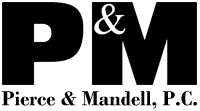Call Us Today!
(617) 720-2444
Expert and Cost-Effective
Legal Advice & Services

• Owning a Medical Office or Building
When purchasing a commercial space or building for a medical or dental practice, it is always better to own the real estate through a separate legal entity both for tax and liability purposes. When purchasing real estate, bank counsel may be helpful, but he/she does not represent the interests of either the buyer or seller. Buying or seller a building or office condominium involves deed registration, title searches, zoning and permitting, thus it is important to hire a lawyer who specializes in real estate conveyancing. When leasing commercial medical space, you first must fully and accurately identify the premises. It is important to be clear on the dimensions and/or square footage of the leased premises and how it is calculated. It is helpful to determine if the square footage referenced is rentable (which includes portions of common areas) or useable (within the four walls of the premises).• Price
When leasing a commercial dental space, there are several common lease rates, including triple net lease and gross lease. In a triple net lease the tenant typically pays a lower base rent to the landlord and then the tenant pays all additional expenses separately. These additional expenses may include: electricity, water, gas, janitorial services, maintenance, property taxes and property insurance. In a gross lease rate all operating expenses are included in the monthly rental payments.
• Lease Term
The lease term is the period during which the tenant has exclusive possession and the obligation to pay rent. A short-term lease may be beneficial for the practice owner looking for flexibility – perhaps to move to a larger space – while a long-term lease can guarantee that the tenant will be able to keep a certain space at a known rent for an extended period.
• Build-Out/Tenant Improvement
Leasing a new space that needs to be built out may require you to seek allowances to finish the space to your specifications. If leasing an existing space, there may be modifications needed, which can be paid for by both the landlord and tenant. Some landlords will permit the tenant to engage its own architect and contractor, subject to the landlord's approval, other landlords will require the tenant to use providers selected by them.
• Maintenance
There are common area maintenance charges that may be passed on to the tenant for the landlord’s expenses for utilities, taxes and other costs related to the building or center where the premises are located. The tenant may be required to pay a certain percentage share of the costs for maintaining, operating, repairing and replacing components of the building. Typically, the proportionate share is based on the tenant’s square footage divided by all leasable square footage for the building.
When entering into a commercial lease, a landlord may require a personal guarantee from the practice owners, even if they own and operate the practice through a corporation or LLC, and may refuse to rent the space without one. The guarantors stand behind the tenant’s performance and would be personally liable for the lease and other payments if the tenant fails to do so for any reason.
• Assignment & Subletting
Having the right to assign the lease or sublet a portion or all of the office is very important when selling a practice or relocating an office. Some leases define any change in ownership of the tenant, even a partial buy-in by another practioner, as an assignment or subletting. Therefore, the admission of new partners or shareholders, or sale of the practice could present problems if the tenant is not allowed to assign or sublet.
A right of first refusal could allow a tenant to be notified and have the first opportunity to either purchase the space or lease additional space before the owner can sell or lease it to another person.
• Insurance
The amounts of insurance coverage are dependent on the financial strength of the parties and the nature of the tenant's business. Often the lease will require the tenant to have the landlord named as an additional insured on the tenant's liability insurance policy.
• Compliance with the Law
Most leases provide that the tenant will "comply with all laws.” There are three areas of the law are of particular concern: ADA compliance, local building code compliance, and environmental law compliance.For information or assistance, contact Pierce and Mandell, P.C.
The above practice points should be considered by medical and dental professionals when buying or selling a practice. This list does not constitute legal advice and is not conclusive. We recommend that medical and dental practices and professionals obtain assistance from professionals (attorneys and CPAs) to ensure that agreements are complete and serve to adequately protect your interests.